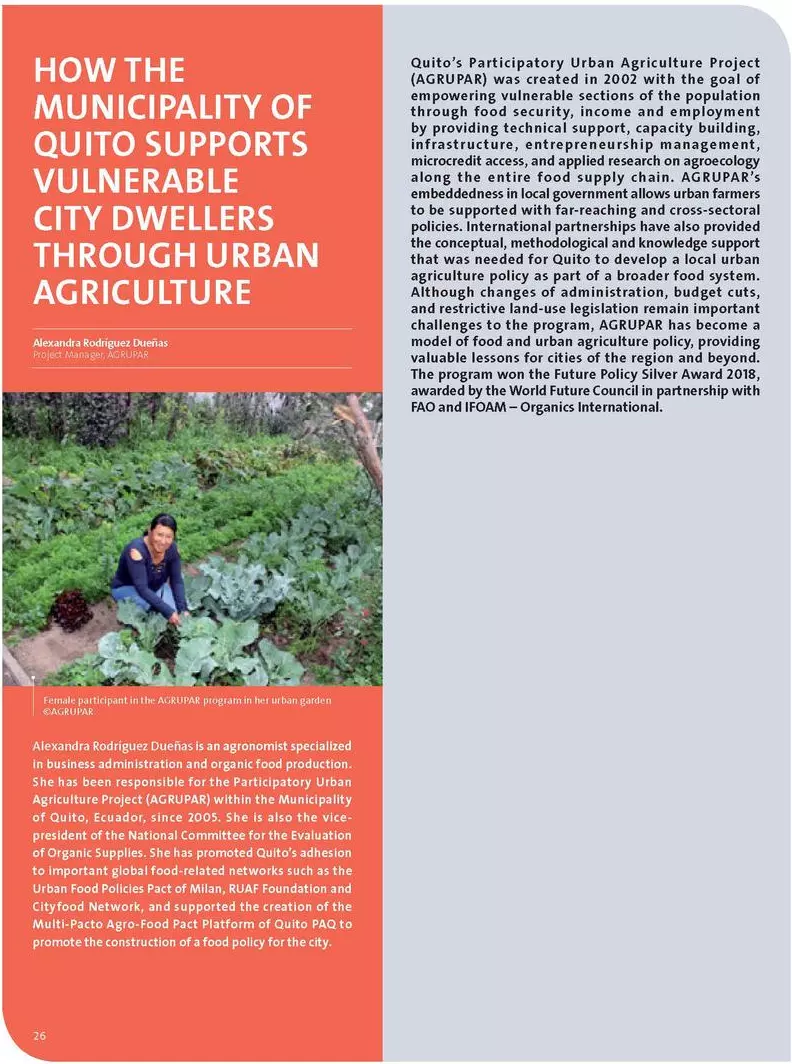Alexandra Rodríguez Dueñas, AGRUPAR, City of Quito
Quito’s Participatory Urban Agriculture Project (AGRUPAR) was created in 2002 with the goal of empowering vulnerable sections of the population through food security, income and employment by providing technical support, capacity building, infrastructure, entrepreneurship management, microcredit access, and applied research on agroecology along the entire food supply chain.
AGRUPAR’s embeddedness in local government allows urban farmers to be supported with far-reaching and cross-sectoral policies. International partnerships have also provided the conceptual, methodological and knowledge support that was needed for Quito to develop a local urban agriculture policy as part of a broader food system. Although changes of administration, budget cuts, and restrictive land-use legislation remain important challenges to the program, AGRUPAR has become a model of food and urban agriculture policy, providing valuable lessons for cities of the region and beyond. The program won the Future Policy Silver Award 2018, awarded by the World Future Council in partnership with FAO and IFOAM – Organics International.



